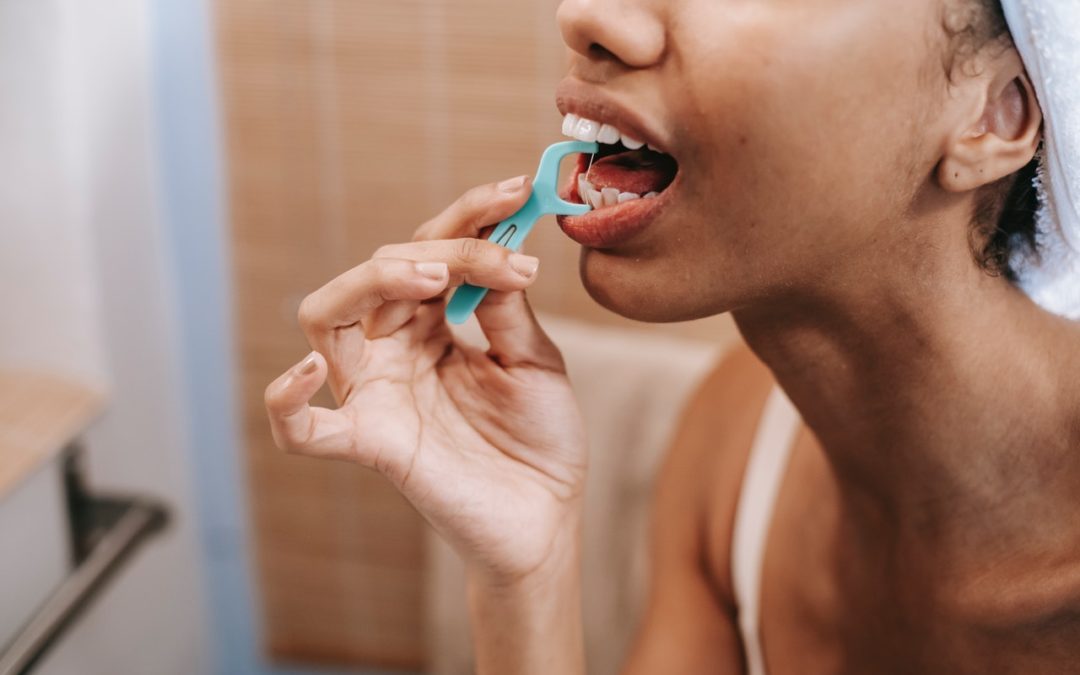5 Benefits of Flossing
In order to maintain good dental hygiene, it is crucial to floss regularly. Without flossing, plaque can accumulate between your teeth and along your gum line, increasing the risk of tooth decay and gum disease over time. Here are five benefits of flossing.
- Gets rid of plaque
There is a colorless sticky film called plaque that forms on your teeth and along your gumline. Plaque forms around your teeth when bacteria in your mouth mix with starchy or sugary foods and drinks. Though it’s not easy to see, the plaque shouldn’t be left in your mouth very long. These bacteria release acids that break down carbohydrates in your mouth. The bacteria in plaque can release acids that attack your tooth enamel if you don’t brush your teeth. If you don’t brush your teeth, bacteria, acids, and carbohydrates can mix together to form a film of plaque. These acids can cause cavities over time if they are not removed through brushing and flossing. Regular flossing helps remove food particles around your teeth and plaque that has built up between them.
- Reduces the risk of cavities
You can develop cavities as a result of tooth decay, which are tiny holes or openings in the enamel of your teeth. You are more likely to develop a cavity if you have more plaque on your enamel. By flossing between your teeth at least once a day, you can prevent food particles from building up and prevent tooth decay from occurring.
- Helps prevent gum disease
When gingivitis is not treated, it can lead to periodontitis, which is a more serious infection. Inflammation around the gums is the first sign of gingivitis. You may also bleed when brushing and flossing. In addition to receding or pulling away from your teeth, periodontitis may cause your teeth to lose bone support, making them loose. If left untreated, periodontitis can cause inflammation throughout your entire body. Brushing your teeth twice a day and flossing once a day can help reduce your risk of gum disease. Professional cleanings done by your dentist every 6 months can also help keep your gums healthy.
- Reduces bad breath
The common problem of bad breath (halitosis) is that food gets trapped between your teeth, which slowly decays. Keeping your breath fresh by flossing is one way to keep it away. It is possible to have foul breath if you do not remove the food particles. Furthermore, plaque can cause cavities and gum disease, which contributes to bad breath, if it builds up around or between your teeth and erodes your enamel.
- It may help your heart health
Your mouth isn’t the only thing that benefits from good dental hygiene. Those who adhered to a high standard of oral hygiene also had a lower risk of heart failure and atrial fibrillation, according to a large 2019 study by the European Journal of Preventive Cardiology. However, the American Heart Association suggests that a connection between oral health and heart health may be more about the relationship between your mouth and your overall health.
Regardless, flossing your teeth is a simple, low-cost way to help boost your oral hygiene as well as your overall health.
Dental health requires regular flossing, not just to remove food and debris from between your teeth, but also to provide a number of other important benefits. If you have any questions about flossing or you are due for a dental cleaning, please contact our team at Archbold Family Dental.

